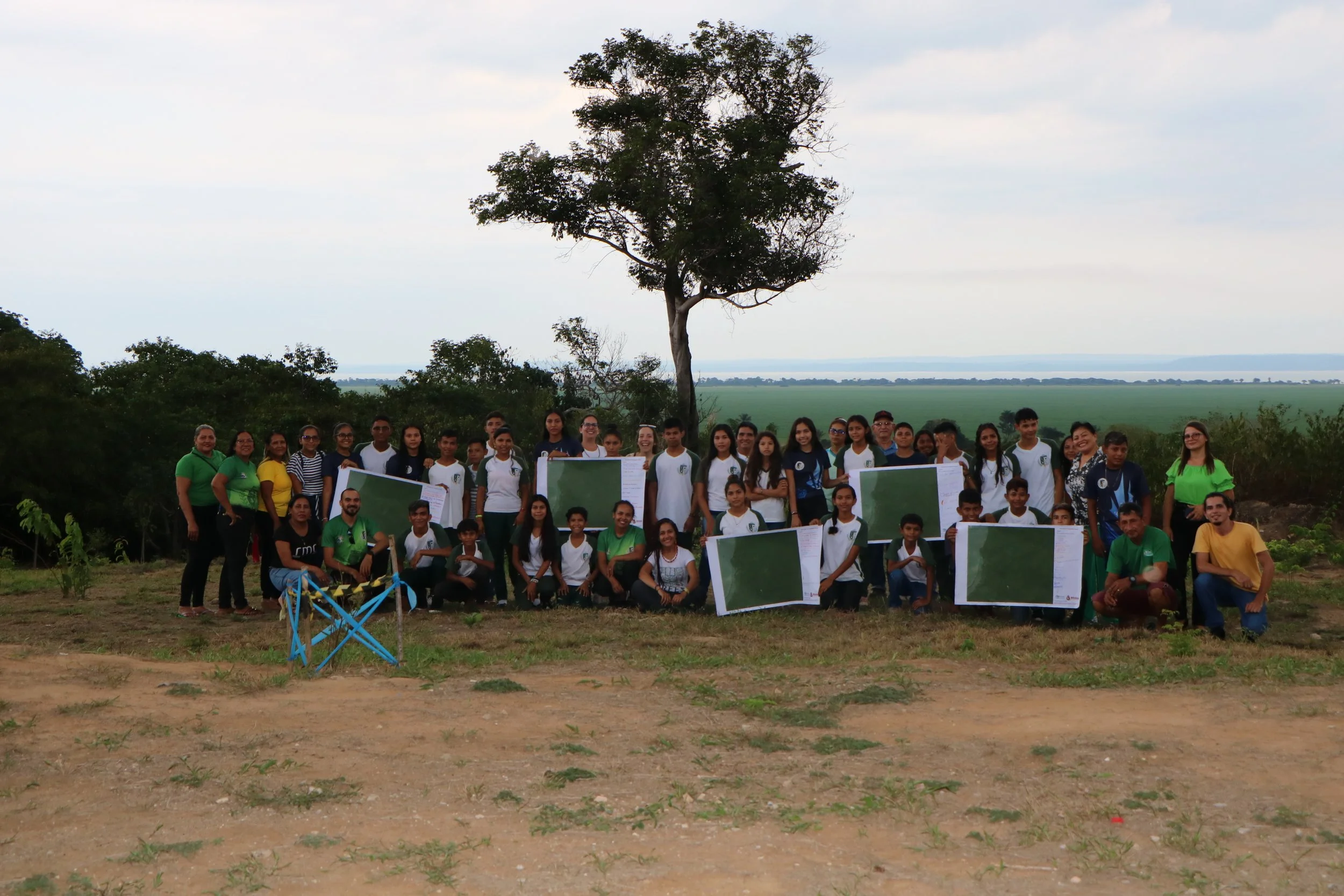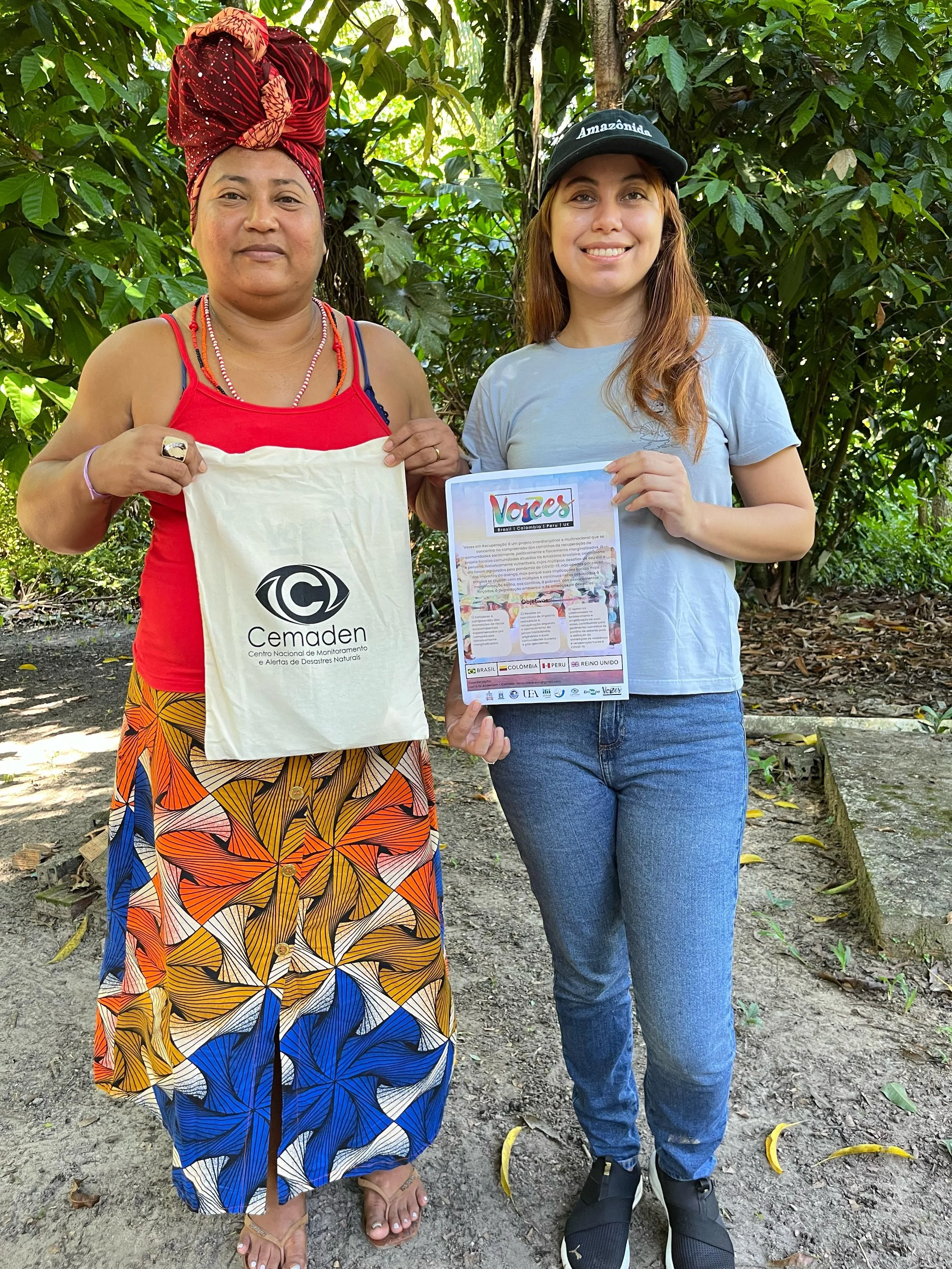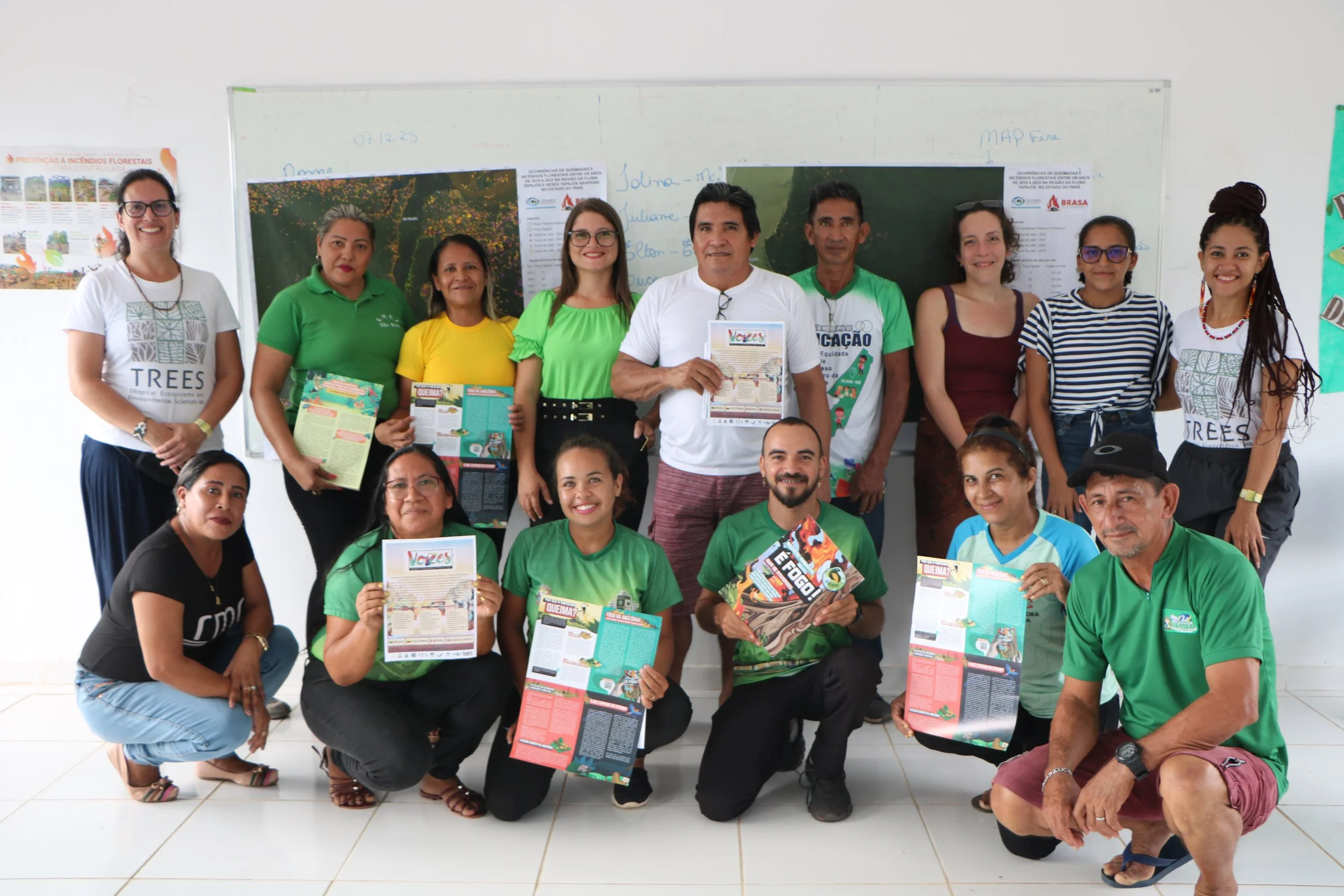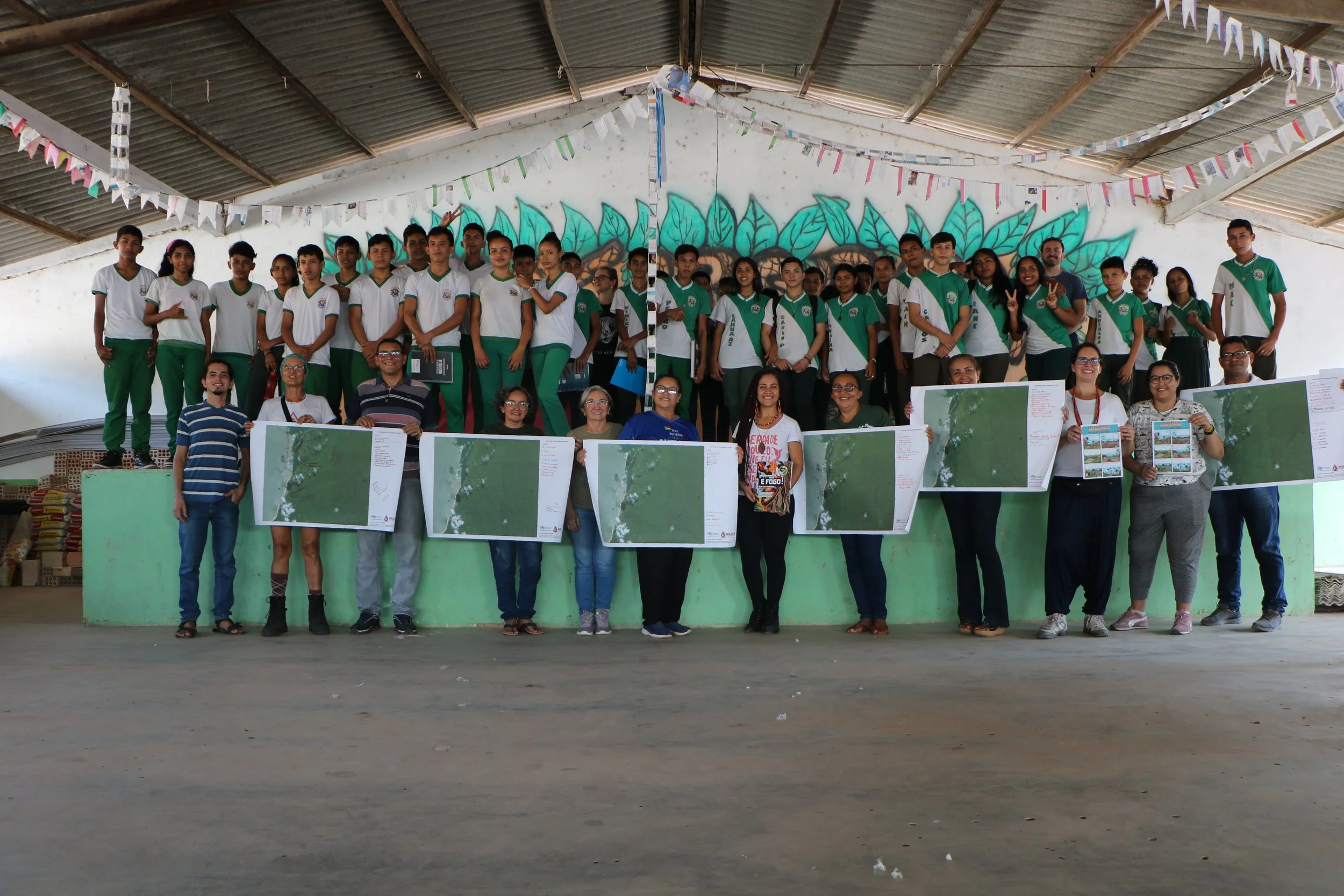
Communities in Brazil
The 'Voices of Recovery' project in Brazil was carried out in the state of Pará, in the North region, where the Amazon Rainforest is located.
We work with communities from the Tapajós-Arapiuns Extractive Reserve (RESEX) and the Tapajós National Forest (FLONA), as well as with a quilombola community called Quilombo Abacatal, near the city of Belém, in the state of Pará.
The RESEX aim to reconcile nature conservation with the quality of life of traditional extractive communities in order to protect their ways of life, ensure the sustainable use of natural resources and also support subsistence activities.
FLONAs aim for the sustainable multiple use of forest resources and the conduct of scientific research in areas predominantly covered by native forest. The Tapajós FLONA is home to a traditional population that was already living in the region before 1974, the year it was established.
The Tapajós-Arapiuns Extractive Reserve is located in the western part of the State of Pará, in the municipalities of Santarém and Aveiro. It is one of the most populous extractive reserves in Brazil, with approximately 4,581 families, spread across about 80 communities and villages.
The project involved 5 school communities in the Resex, namely Anama Julieta Muruci Municipal Elementary School - São Pedro do Muruci Indigenous School, Nossa Senhora de Fátima Elementary School in Vila Anã; João Franco Sarmento Elementary School, Vila Suruaçá, José de Melo Filho Elementary School, Vila Amorim; and Santa Maria Gorete Elementary School, Vila Gorete. The selection of these communities was carried out jointly with SEMED - Municipal Department of Education of Santarém.
The Flona Tapajós is located in the west of the State of Pará, in the municipalities of Belterra, Aveiro, Placas and Rurópolis. It is inhabited by approximately 1,100 families from 25 traditional communities and 3 indigenous villages.
At Flona Tapajós we work with the school communities of EMEF Nossa Senhora do Perpétuo Socorro, Vila Maguari, EMEF Santa Terezinha, Vila Piquiatuba, and EMEF Santa Filomena, Vila Prainha. The selection of these communities was carried out jointly with SEMED - Municipal Department of Education of Belterra.
Both Sustainable Use Reserves share infrastructure and activities involving the use of forest products for subsistence and local markets, and are committed to ensuring that such activities are compatible with sustainability objectives.
The quilombo, which in the Bantu language means "settlement", were groups created in hard-to-reach places as a form of resistance to slavery. They were residential centres formed by formerly enslaved people with a relative degree of social, economic and political organisation.
Abacatal - Aurá is a remnant quilombo community, a traditional Brazilian population, located in the municipality of Ananindeua, consisting of 150 families. The territory was certified as a remnant quilombo in 2012 by the Palmares Cultural Foundation. Alongside this community, the project addressed the theme of the impact of Covid-19 on labour relations.



